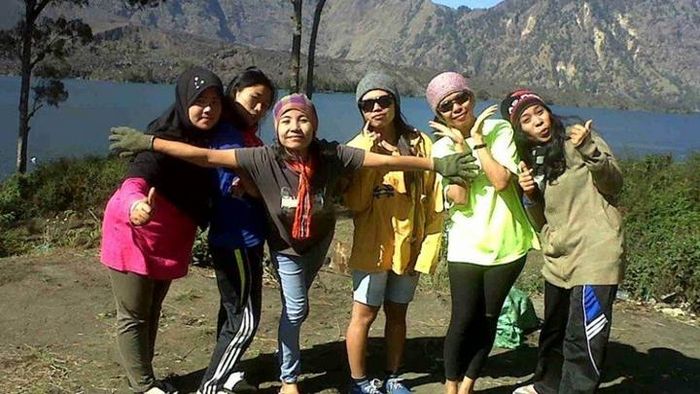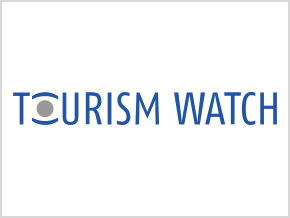Tourism is a promising sector of employment for women. It was even reported recently by UNWTO that the global tourism industry has a smaller pay gap between men and women than other sectors. However, in Indonesia, there is still a significant gap. Women still face challenges to participate in the tourism sector. This is especially true where digital technology is concerned.
In Indonesia, ambitious national plans have been adopted by the government in order to increase gender equality in tourism. Yet, it is not clear what resources have been dedicated towards this objective, and government support at all levels appears to be inadequate. Although Indonesia tends to be regarded as a highly connected nation due to the affordability of internet there, gaps between internet use by women and men still exist.
Nevertheless, tourism is a promising sector of employment for women in Indonesia. There are growing numbers of women-owned businesses and community initiatives to provide training and jobs for women specifically. ‘Rinjani Women Adventure’ is the first female hiking guide company in Lombok, providing training to local women since 2015. Being a hiking guide is not traditionally a female profession in Lombok, and female guides face many barriers as a result. Using technology to enhance their business has been difficult, as they had no experience designing websites or using platforms. Yet, reviews have helped them defend their position within the community. But more is needed, especially where digital platforms are concerned.
Overcoming gender divides
Although many Indonesian women are digitally connected, business owners and workers continue to lag behind in terms of their digital skills. In Ubud, Bali, women tend to outpace men in terms of owning and managing home stays, massage parlours and small restaurants. Whilst many of the women own their own phones or computers, they frequently chose to defer the use of these for business purposes to their sons or husbands. Some women may indeed require support to obtain access to digital skills and equipment, but there are other cultural issues, including gendered associations with technology that underpin gender inequality in this context.
Moreover, where platforms are concerned, we need to look at the broader tourism context to see how women and men may be benefitting differently. Female skilled workers, such as the weavers and pottery artisans in Pringgasela and Masbagik in Lombok, contribute significantly to the popularity of their region on platforms due to their photos taken and shared by tourists. Yet, the benefits of this popularity may instead flow to male tour operators, drivers, or boutique owners who advertise or sell their services on platforms to go and see them. The women are only likely to obtain a small percentage of sales for their artefacts, and do not usually receive any monetary benefits from tour operators.
The approach to addressing gender inequality in the platform economy has to change. We need to think holistically and from the perspectives of women and small business owners. The primary objective must be to influence tourism platform companies who control what information is collected and displayed, to whom and how. Right now, only the customer’s preferences are considered. Algorithmic rankings and machine learning models amplify existing inequalities between international/local, and new/established because businesses that have fewer ratings and historical interactions may not be able to rise to the top of rankings.
Aligning Internet portals with sustainability goals
This technological development contradicts most policies in place to reduce the gender digital divide. For example, many initiatives seek to reduce inequalities by supporting women to obtain necessary skills or by ensuring that technology is affordable. But knowing how to use platforms may no longer have the desired effects. If you add your business to a digital transactions platform, and you make sure that you collect positive reviews from your customers, it’s no longer guaranteed that your business will move up the platform rankings. The way that machine-learning algorithms work is a bit like making a giant pot of soup made up of thousands of ingredients, with each individual getting a slightly different mix. Businesses won’t know what the machine learning algorithm is focusing on. Is it how family-friendly the service has been rated? Is it the location? Is it the cost? Moreover, little is known about how these algorithms will treat new entrants to the market. More is needed to make competition fair for small businesses.
With government support, the aim needs to be to enhance the regulation process for listing and categorising businesses to prioritise those that align with Indonesia’s sustainable tourism development goals. This would include strategies and activities to both make explicit what gender equality means in the tourism sector across different parts of Indonesia, and to tackle the root causes of gender inequality. The practical way to address the problem is for Indonesia to monitor and influence platform companies to hold tourism companies to account, by incorporating sustainable development ratings along with customer ratings, and instantiating penalties for companies that do not abide by local regulations. For instance, if Lombok wishes to prioritise gender equality in terms of equitable distribution of economic benefits and/or reducing gender bias within the tourism sector, local government could suggest that these indicators be monitored and tracked as part of the platform listings and rankings.
Caitlin Bentley is a Research Fellow at the Agency, Autonomy, Assurance (3A) Institute, Australian National University. She is researching social inclusion policy and practice in the age of artificial intelligence.



